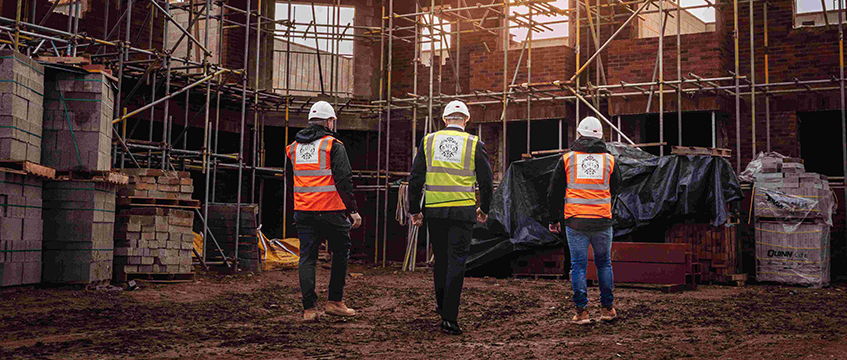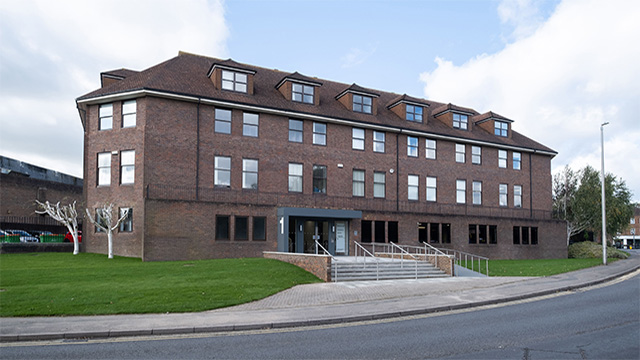Planning remains greatest hurdle for 93% of housebuilders
The UK’s planning system has been listed as a “major obstacle to growth” by SME housebuilders for the fourth consecutive year.
SME housebuilders have reported that the top two major barriers to growth for SME developers are chronic delays in the planning system and under-resourced local authority planning departments.
A recent survey carried out by Close Brothers Property Finance, the Home Builders Federation and Travis Perkins was answered by 305 housebuilders, a 40% rise on last year’s survey responses.
The UK’s planning system has been listed as a “major obstacle to growth” by SME housebuilders for the fourth consecutive year.
SME housebuilders have reported that the top two major barriers to growth for SME developers are chronic delays in the planning system and under-resourced local authority planning departments.
A recent survey carried out by Close Brothers Property Finance, the Home Builders Federation and Travis Perkins was answered by 305 housebuilders, a 40% rise on last year’s survey responses.
Both factors have severely impeded SME’s ability to deliver much-needed housing stock and have been compounded by rapidly increasing associated costs.
Major obstacles
Of the respondents, 91% said that the planning departments in local authorities are under-resourced, which is hindering growth of SME home builders.
Nearly half, 46% of SME developers said that the cost of obtaining planning permission has risen by over 30% in the past three years, even before December’s planning fee rises were introduced.
Almost three-quarters, 72% claim interest rate rises have been a major obstacle in the past year. The Bank of England’s 14 consecutive rate hikes have hit the sector particularly hard.
The report found that not only have home builders had to contend with higher borrowing costs themselves, but demand for new homes has dropped substantially as many buyers have been forced to reconsider how much they can afford to borrow, or in some cases put off buying a home altogether.
Just 19% of the respondents said that they think the government’s current approach on housing and planning was positive for first time buyers, a sharp decline in sentiment from 39% of SME housebuilders supporting the governments approach in 2022.
The report comes as all indicators point towards a sharp fall in housing supply amidst an increasingly challenging policy and economic environment.
Proposals to abolish mandatory housing targets were confirmed by the government before Christmas, a decision that 80% of survey respondents said would be a barrier to growth as, it will likely lead to more local authorities withdrawing their local plans. Over 60 have already done so.
SME housebuilders have also faced more than four years of uncertainty over the nutrient neutrality issue that is currently holding up around 150,000 new homes.
Improvements on cost
On a more optimistic note, the number of SMEs citing the supply and/or costs of building materials as a major barrier to growth dropped significantly in the past year, from 79% to 42%.
Global supply chains have largely recovered following the Covid-19 pandemic and war in Ukraine.
The cost and supply of labour is similarly perceived by fewer SMEs as a major barrier to growth than last year, 41%, down from 64% in 2022, suggesting an easing in the labour market.
Nearly two thirds (64%) of SMEs said they are building homes which include sustainable technologies and features that go beyond the requirements of building regulations, with over 60% including photovoltaic panels, air/ground source heat pumps, high performance double glazed or triple glazed windows, and preservation/protection of wildlife and nature.
Role of SMEs
Close Brothers Property Finance managing director Rowland Thomas said: “Navigating an under-resourced planning system continues to present the greatest challenge to SMEs, who, unlike larger housebuilders, aren’t in a position to direct capital into new projects when there are delays.
“To make matters worse, there are now increased planning application fees to contend with. One would hope that the extra revenue these generate will be used to boost resources, but as the money won’t be ringfenced there is sadly no guarantee.”
“The major change in the fiscal environment has also been a blow to the sector. Consecutive interest rate rises have not only impacted construction and labour costs, but also stifled mortgage liquidity and buyer demand.
“Thankfully rates appear to have reached their peak in the current cycle and there is growing confidence that rate cuts may be as soon as Q2 this year.”
Home Builders Federation executive chairman Stewart Baseley said: “The increasingly onerous policy and regulatory environment has seen the number of SME builders plummet in recent years, and we urgently need to see a reversal of the anti-development approach by government or more companies will disappear.
“SMEs are vital to the industry’s ability to deliver the homes we need and play a vital role in training and communities across the country.”
To send feedback, e-mail akanksha.soni@eg.co.uk or tweet @AkankshaEG or @EGPropertyNews
Photo © Close Brothers Property Finance











